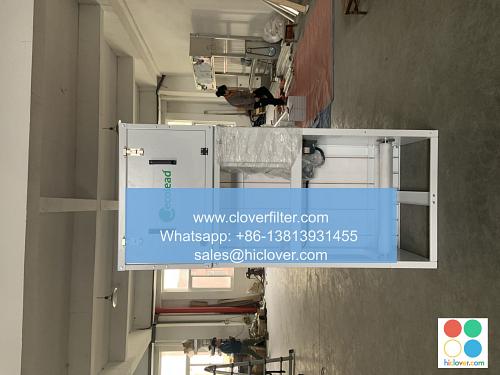Air Filter Regulations: A Guide to Compliance

Air filter regulations are a crucial aspect of maintaining good indoor air quality (IAQ) and ensuring the health and well-being of building occupants. With the increasing awareness of the importance of clean air, governments and regulatory bodies have established various standards and guidelines for air filter compliance. In this article, we will delve into the world of air filter regulations, highlighting various application areas, and providing a comprehensive guide to compliance.
Introduction to Air Filter Regulations
Air filter regulations are designed to minimize the risks associated with poor IAQ, including respiratory problems, allergic reactions, and other health issues. These regulations apply to various industries, including commercial HVAC systems, industrial air filtration systems, and residential air purification systems. Compliance with these regulations is essential to ensure the safe and efficient operation of air filtration systems.
Key Regulations and Standards
Several key regulations and standards govern the air filter industry, including:
- ASHRAE (American Society of Heating, Refrigerating, and Air-Conditioning Engineers) standards: Provide guidelines for air filter performance, testing, and certification.
- ISO (International Organization for Standardization) standards: Establish global standards for air filter testing, classification, and performance evaluation.
- EN (European Norm) standards: Regulate air filter performance, safety, and environmental sustainability in European markets.
- OSHA (Occupational Safety and Health Administration) regulations: Mandate air filter compliance in workplaces to ensure worker safety and health.
- Commercial buildings: Offices, schools, hospitals, and shopping centers require compliant air filtration systems to maintain good IAQ.
- Industrial facilities: Manufacturing plants, warehouses, and other industrial settings need air filters that meet regulatory standards to ensure worker safety and prevent environmental pollution.
- Residential buildings: Homes, apartments, and condominiums require air filtration systems that comply with local and national regulations to protect occupant health.
- Healthcare facilities: Hospitals, clinics, and nursing homes require high-level air filtration systems to prevent the spread of airborne pathogens and ensure patient safety.
- Regular maintenance: Inspect, clean, and replace air filters according to manufacturer recommendations and regulatory guidelines.
- Filter testing and certification: Conduct regular testing and certification of air filters to ensure compliance with regulatory standards.
- Air filter selection: Choose air filters that meet or exceed regulatory standards for performance, safety, and sustainability.
- Training and education: Provide training and education to personnel responsible for air filter maintenance, testing, and replacement.
Application Areas for Air Filter Regulations
Air filter regulations apply to various industries and applications, including:
Compliance Strategies
To ensure compliance with air filter regulations, follow these strategies:
Conclusion
Air filter regulations are essential for maintaining good IAQ and ensuring the health and well-being of building occupants. By understanding the key regulations, standards, and application areas, and implementing effective compliance strategies, industries can ensure the safe and efficient operation of air filtration systems. Remember, air filter compliance is not just a regulatory requirement, but also a critical aspect of indoor air quality management and occupant health protection. It seems like you forgot to include the prompt. Could you please provide more details or specify what you would like to know or discuss? I’m here to help with any questions or topics you have in mind!

